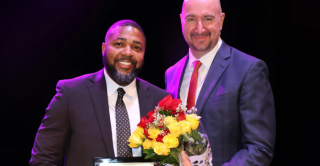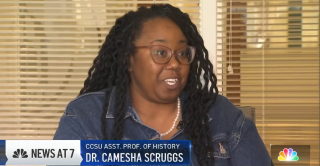
Counsel of Record: Pam Nagy, Supervisory Assistant Public Defender and Rocco A. Chiarenza, Senior Assistant State’s Attorney
Summary of Criminal Case: Whether State v. Arroyo Should Be Modified to Prohibit Legally Inconsistent Verdicts Where Defendant Is Convicted of Offense but Acquitted of Lesser Included Offense for Same Facts; Whether Mistrial Should Have Been Granted Where There Was 25-Day Delay During Deliberations.
On September 6, 2020, the defendant and another man broke into the victim's apartment and assaulted and robbed him. The defendant was charged, inter alia, with home invasion and first-degree burglary for this incident. At trial, the defendant requested:
- An instruction on second-degree burglary as a lesser included offense of home invasion
- An instruction on third-degree burglary as a lesser included offense of first-degree burglary
The court granted the defendant's request.
As to home invasion, the court instructed in pertinent part that the jurors must find the defendant knowingly and unlawfully entered a dwelling while someone was present with the intent to commit a crime, namely possession of a controlled substance or larceny. As for third-degree burglary (as a lesser included offense to first-degree burglary), the court instructed that the defendant must have knowingly and unlawfully entered a building with the intent to commit a crime, which was possession of a controlled substance and/or larceny.
Jury deliberations began October 14, 2021. The jury did not reach a verdict, and the proceedings were adjourned for three days until October 18, 2021.
When court resumed, the defendant was not present because he quarantined due to COVID-19 exposure. He could not return to court until October 27, 2021. The day before trial was to resume, the court learned that the defendant contracted COVID-19 and would not be able to return to court until November 8, 2021. Defense counsel informed the court that the defendant would not agree to appear by video. Defense counsel then moved for a mistrial on the ground that the 25-day delay in jury deliberations would result in substantial and irreparable prejudice to the defendant's case. Defense counsel argued that the long lapse of time would cause the jurors to forget some of the evidence, the arguments of counsel, and the court's instructions. The court denied the motion for a mistrial, finding that the defendant had failed to show either substantial or irreparable prejudice.
Jury deliberations resumed November 8, 2021, and later that day, the jury found the defendant guilty of home invasion but acquitted him of the other charges. The defendant directly appealed from the judgment of conviction to the Supreme Court pursuant to General Statutes § 51-199 (b) (3).
On appeal, the defendant claims the home invasion conviction should be vacated because, based on the exact same allegations and set of facts, he was acquitted of the lesser included offense of third-degree burglary, which is an essential element of the greater offense of home invasion. The defendant argues that the holding of State v. Arroyo, 292 Conn. 558, 586 (2009), which concluded that claims of legally inconsistent verdicts are not reviewable, is unsound because there is "no just reason to allow a defendant to be convicted of the crime when the jury has found that an essential element of the crime in the form of a lesser included offense was not proven."
The defendant also claims that the trial court should have granted his motion for a mistrial because he was prejudiced by the 25-day delay in jury deliberations due to the COVID-19 pandemic.
All filings in this appeal, including briefs, can be found here.



